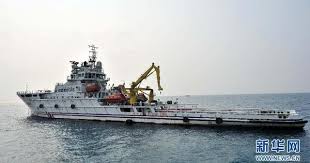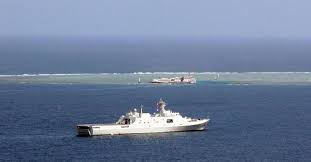Quotes: 'Philippine President Rodrigo Duterte surprised the Western world recently by threatening to “separate from the UN,” and saying he would invite China and African countries to form a new international body.'
Philippine President Rodrigo Duterte surprised the Western world recently by threatening to "separate from the UN," and saying he would invite China and African countries to form a new international body.Duterte's threat came in response to the UN's criticism of his anti-drug war that has seen more than 700 suspected drug traffickers shot dead on the spot by the military and police.
Philippine society is severely afflicted by drugs. Statistics show there are over 3.7 million drug addicts in the country, and drug dealers have formed a secure business network in collaboration with corrupt authorities. Duterte has publicly allowed military police officers to fire at will if necessary, and he has even encouraged vigilantes to kill defiant drug traffickers.
Duterte's new policy has won him great popularity and more than 600,000 drug traffickers and addicts turned themselves in half a month. However, the harshness of the anti-drug war has annoyed many Western media and human rights groups, which keep blaming Duterte for violating the rule of law and human rights.
Duterte's lash-out against the UN also featured criticism of the US. "Why are you Americans killing the black people there, shooting them down when they are already on the ground?" he asked. He also blamed the UN for not doing enough to deal with the human rights crises that are happening in Iraq and Syria and allowing big powers to bomb villagers and children.
Duterte's outspokenness makes him stick out among US allies. He was even dubbed the Philippines' Donald Trump before he was elected. His big mouth has raised concerns among the US and Japan particularly, which do not know whether he just talks, or he will walk the talk.
The Philippines' biggest value for the US and Japan is its territorial disputes with China in the South China Sea. Washington and Tokyo hope Duterte could remain aggressive like his predecessor Benigno Aquino III and continue serving as a bridgehead for their geopolitical game against China, but Duterte does not find this role tempting. He knows that the US and Japan will benefit in the South China Sea tensions, not the Philippines.
Duterte does not want his energy to be heavily consumed by the long-standing territorial disputes, but wants to put more effort into domestic governance. His first action is to eliminate the most disturbing problem of drugs. However, even though his radical move has gained popularity among the Filipinos, it is against the Western-branded universal value of human rights.
If the anti-drug war continues to expand in the future, pressures from the US and the rest of the Western world will rise dramatically, and the Philippine-US relationship will also be victimized and become bumpy.
The Philippines and the US are close allies with many rifts. Manila needs Washington, but holds aversion to any aggressive intervention in the Philippines' home affairs. This, instead of the South China Sea disputes, is the crux that lies within Philippine society. - Global Times
Related:
Death Toll Soars in Duterte's Drug War - PressReader
Related posts:
May 11, 2016 ... It won't be possible for Duterte to turn the domestic Philippine political ... China
will not be too naïve to believe that a new president will bring a ...
.

.
Apr 29, 2016 ... Job for new Philippine head: Stop the kidnapping of foreign citizens ... Filipinos
are about to elect a new president. Lets hope one of the ...

Mar 3, 2016 ... Towing away the grounded Philippine ship is a once-and-for-all measure to ...
The Philippines will have a new president this year, and Benigno ...
.

.
May 7, 2016 ... The Philippine presidential election on May 9, arguably the most contentious in
decades, will see a new leader assume power because ...


No comments:
Post a Comment